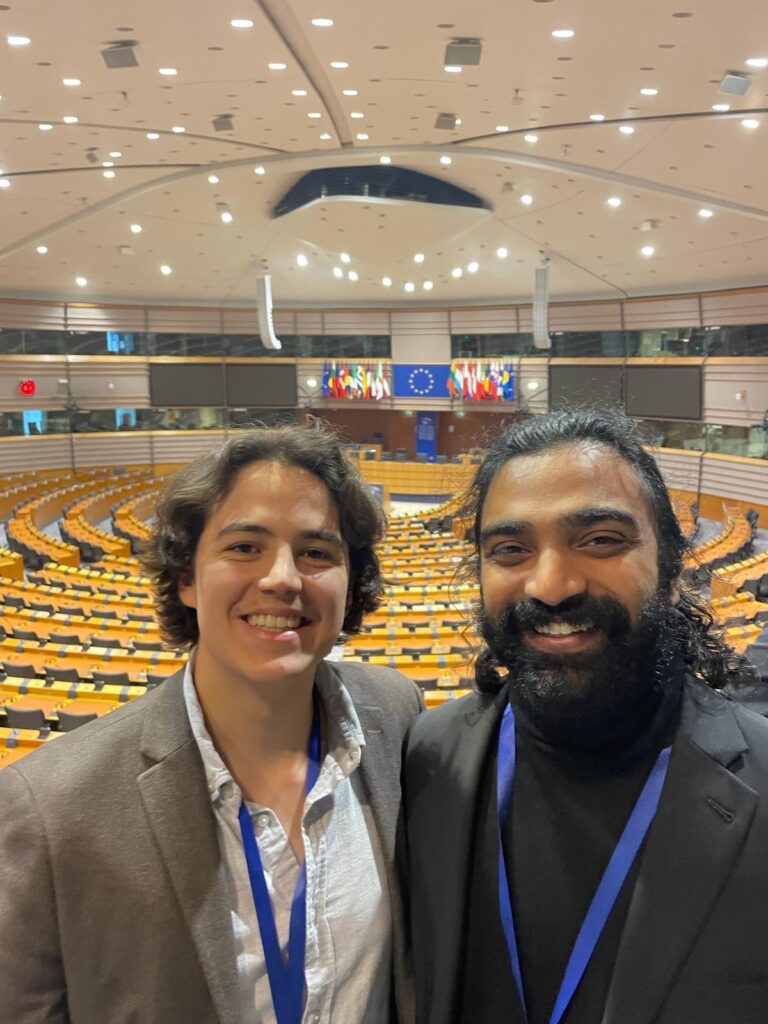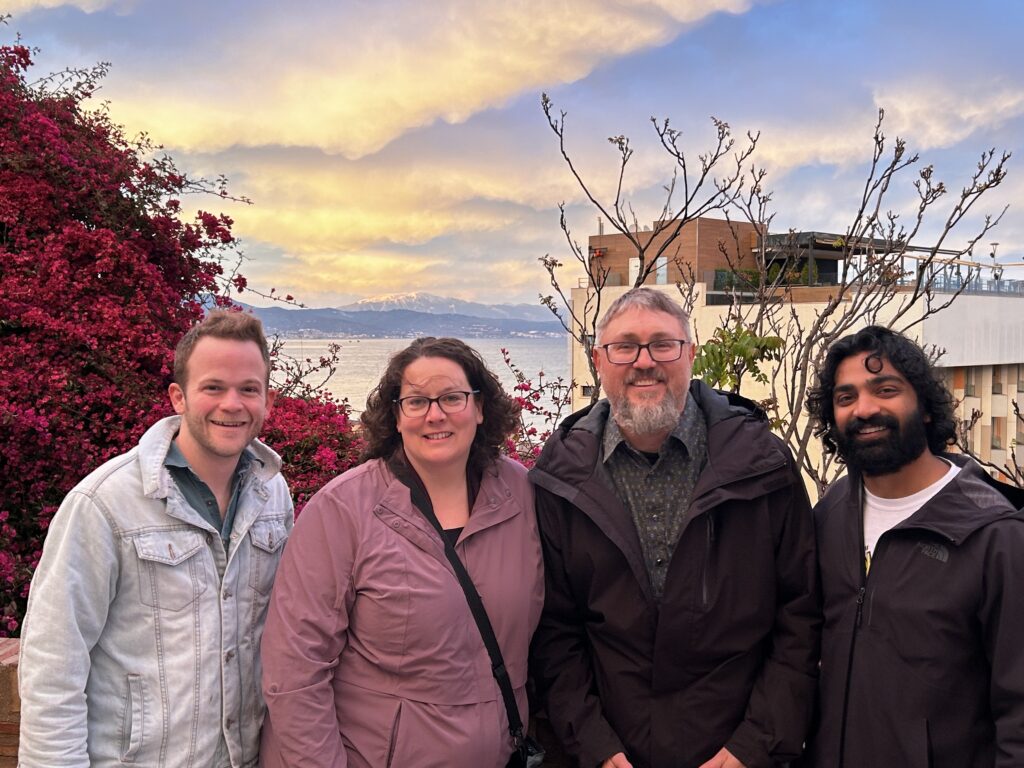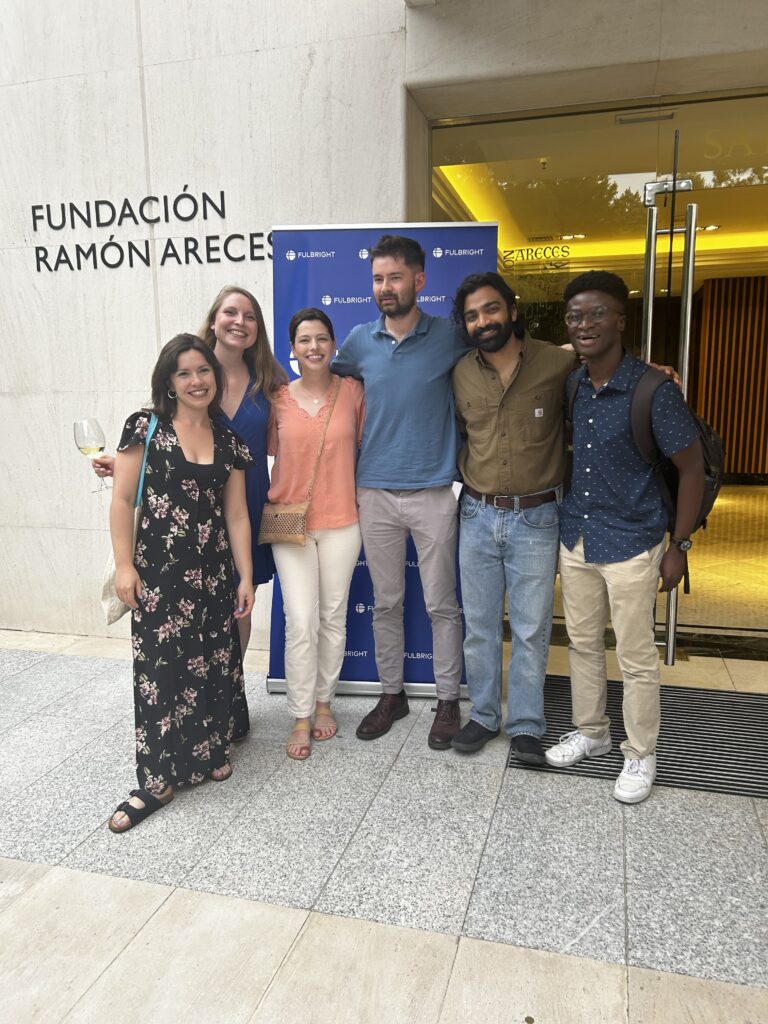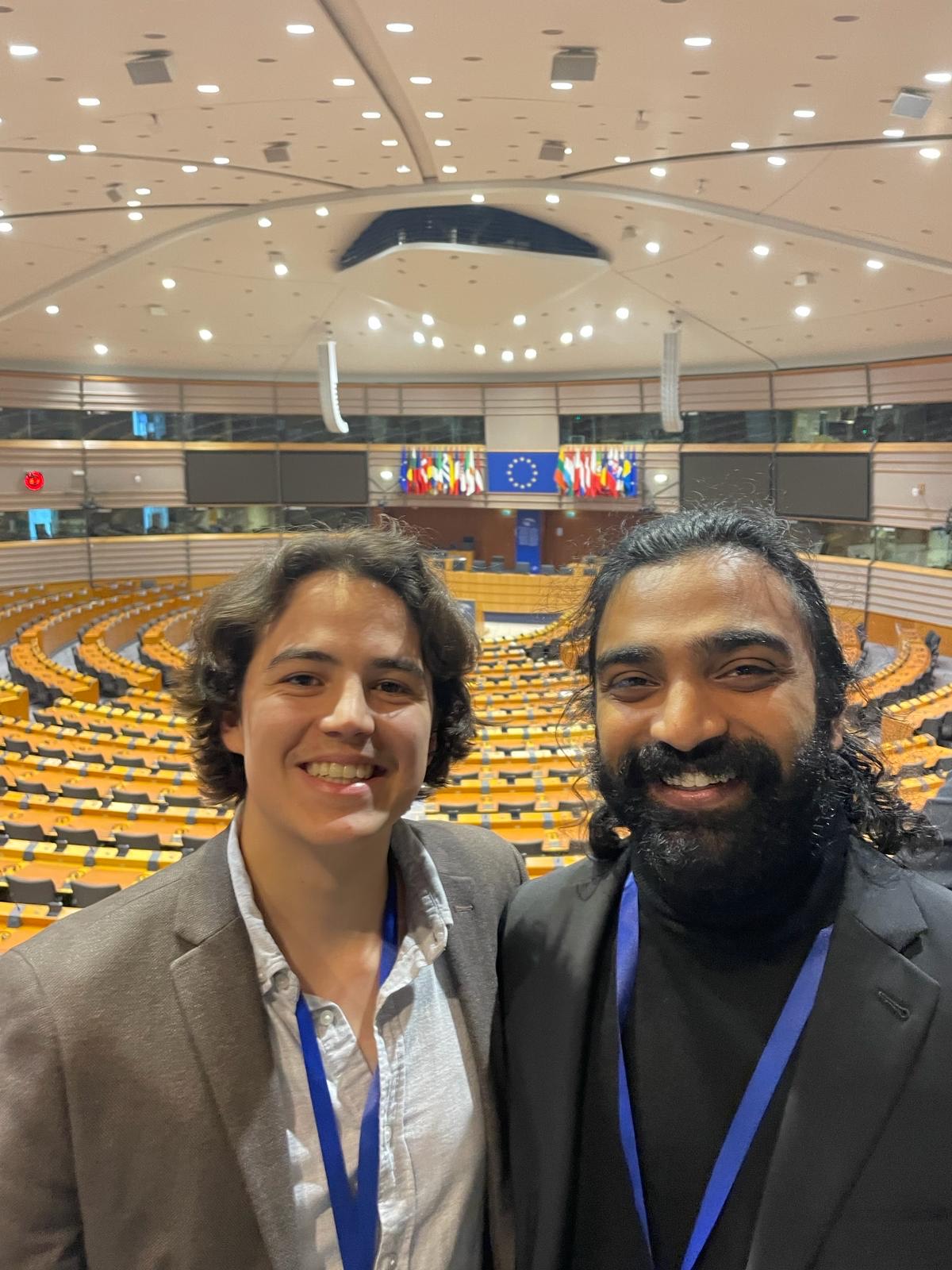As a Fulbright Schuman student researcher for the 2023-24 academic year, Nilesh Kavthekar conducted research in tech and labor policy in Denmark (University of Copenhagen), Spain (IE Law School), and Belgium (KU Leuven). His research compared the labor protections offered to gig workers in different EU countries and how national models change under the proposed European Union Platform Work Directive. Nilesh has worked with organizations like Uber, the NYC Department of Consumer and Worker Protection, and Driver’s Seat Cooperative. He graduated from the University of Pennsylvania with degrees in Economics and Computer Engineering.
Q: Could you describe what your research project entailed?
My project focused on the parallel development of labor policies protecting gig workers (e.g. Uber drivers, Doordash couriers) in the European Union and the US. I analyzed the worker protections afforded by various policies, such as the EU’s Platform Work Directive, Spain’s “Rider Law,” and collective bargaining agreements for gig workers in Denmark. I used a political economy approach, comparing how local institutions and culture influenced these particular policies in the EU and why they differed in significant ways from US regulations. Through this project, I have helped identify some of the gaps in the policy approaches of each jurisdiction; the learnings can aid researchers and policymakers in determining how best to protect gig workers in the future.
Q: In what way is your specific field of research relevant to the transatlantic relationship?
My Fulbright project was focused on comparative policy research. As the US and the EU are the largest developed economies in the world, it is highly relevant to each region what the other is doing in terms of economic and labor policy. My project sought to build greater understanding between the two regions and cross-pollinate learnings about labor policy.
Q: How did you initially learn about the Fulbright Schuman Program, and what motivated you to apply?
I learned about this program from my friend Shivum Bharill. I was motivated to apply because I could gain a pan-EU understanding (which my policy research lent itself to), I could learn from a variety of other experienced research fellows (from law to international relations to even oceanography), and I could get unfettered access to global policy institutions at the EU-NATO summit.

Q: How did you select your particular host countries?
I selected my host countries primarily based on the particular professors I was most interested in working with. In particular, I sought out professors who had expertise in different regions of the EU, including the Nordics (Anna Ilsøe, UCopenhagen), southern Europe (Antonio Aloisi, IE Law School) and Belgium/central Europe (Valeria Pulignano, KU Leuven).
Q: What have you accomplished during your time in Europe? What can you tell us about the initial outcomes of your research?
I did several things:
- I delivered 3 talks over the course of the Fulbright on the gig economy and public policy;
- I drafted blog posts about labor policy in Denmark and the EU Platform Work Directive;
- I wrote a draft for a research paper on “Antitrust & Genuine Autonomy for Self-Employed Platform Workers” with my advisor Antonio Aloisi. We are currently editing the paper and seeking comments from other experts before submitting the paper for publication.
My research focus evolved over the course of my Fulbright, but I think overall I’ve built a much broader understanding of what factors are influencing labor protections for gig workers in the EU and the US. In particular, a major development over the last year was my realization that Antitrust policy was an overlooked area of public policy that could improve the economic livelihoods of gig workers. My paper is of course focused on this area, highlighting challenges as well as potential opportunities for antitrust institutions in both regions to intervene on behalf of gig workers.
Outside of your research, how have you spent your time? In what ways have you engaged with your host community?
I have:
- participated in Spanish classes (3 hours/week), improving my Spanish to early B1 level. I’ve also participated in language exchange events where I’ve met other Spanish and English learners. This has opened up the city to me in a new way.
- learned how to play padel, which is an extremely popular sport in Spain. Padel has been a great social outlet to meet new people in the city.
- learned more about Spanish cinema, watching various films by Pedro Almodovar, and attending the local government-sponsored cinema to watch historical films.
- visited various cities in Spain, learning about the rich history, culture, and food across the country. I visited Seville, Barcelona, Cordoba, Malaga, Alicante, Oviedo, and Segovia.
Q: Can you tell us the story of a particular memorable moment from your time in Europe?
I remember going on a trip with my friend Luke, a Fulbrighter in the Fulbright Spain Program, to Cordoba and seeing the Mezquita for the first time. It was an almost spiritual experience walking inside the giant structure, taking in the well-preserved designs and colors, and seeing both a Mosque and Cathedral in the same place. I think of Spain as a place where different cultures combined and shared space, and this moment really embodied that idea.

Q: Have your host countries been what you expected? In what ways has life in your host country surprised you, either for its similarities to or differences from your own culture?
I was surprised how little English is spoken, even in such a large city as Madrid. This has certainly been a forcing function, encouraging me to learn Spanish much more quickly.
One other major difference from our own culture is how important it is to “work to live” rather than “live to work.” Work does not play as large of a role in life as it does in the US. Instead, the arts, religion, social events, and nightlife all are bigger institutions in Spain. You can even see it in the way people eat meals during the workweek — in the US you can sometimes see people scarfing down food at their desk, while in Spain coworkers are often taking long lunch breaks together and even taking a small siesta. I’ve also developed a different relationship with my work as a result.
Q: What was it like to split your time between multiple countries?
I really enjoyed getting to spend time in multiple cities across Europe. I mostly stayed in Madrid, but I did a month in Copenhagen and a week in Brussels. I think I got the most exposure to Spanish culture but I also got to witness what it was like in other parts of Europe as well, and I think this has given me a more well-rounded perspective on Europe as I return to the US. I noticed other differences from the various countries. For example, in Spain you tend to see people staying out later, going out, more sociable. In Denmark it was a lot more close-knit, and more time was spent indoors (and home interiors reflected this). One challenge in splitting time was that, because the Schuman cohort is so dispersed, it wasn’t possible for us to really be connected until the EU-NATO conference in February. As a result, the local Fulbright institutions were more important to get connected to. As a Schumaner, you do have to put a little more effort to make sure you are connected with your local Fulbright commission.
Q: What will you do after your Fulbright grant? In what ways has your experience in Europe this year impacted your plans for the future?
I will be attending the University of Chicago for my Masters in Public Policy. I’m really excited to bring my Fulbright experience back with me. In addition, my Fulbright experience has opened me up to the idea of returning to Europe in the future, perhaps for an internship or even PhD.

Q: What advice would you give to someone who is considering applying to the Fulbright Program?
I would advise prospective Schuman candidates to consider whether their project requires a pan-EU perspective, or if they would benefit more from going deeper in a particular country. I had a great experience with the Fulbright Schuman Program, but I could imagine situations where researchers may feel like they didn’t get adequate time in any one place to make meaningful progress on their research problem. In addition, I would advise Schumaners to be mindful of local languages spoken in their host countries. Even though the Fulbright Schuman Program doesn’t have a language requirement, it can be really helpful to have prior experience in the local language. Perhaps you took the language in school already, or are taking classes in the particular language on the side at the moment.

